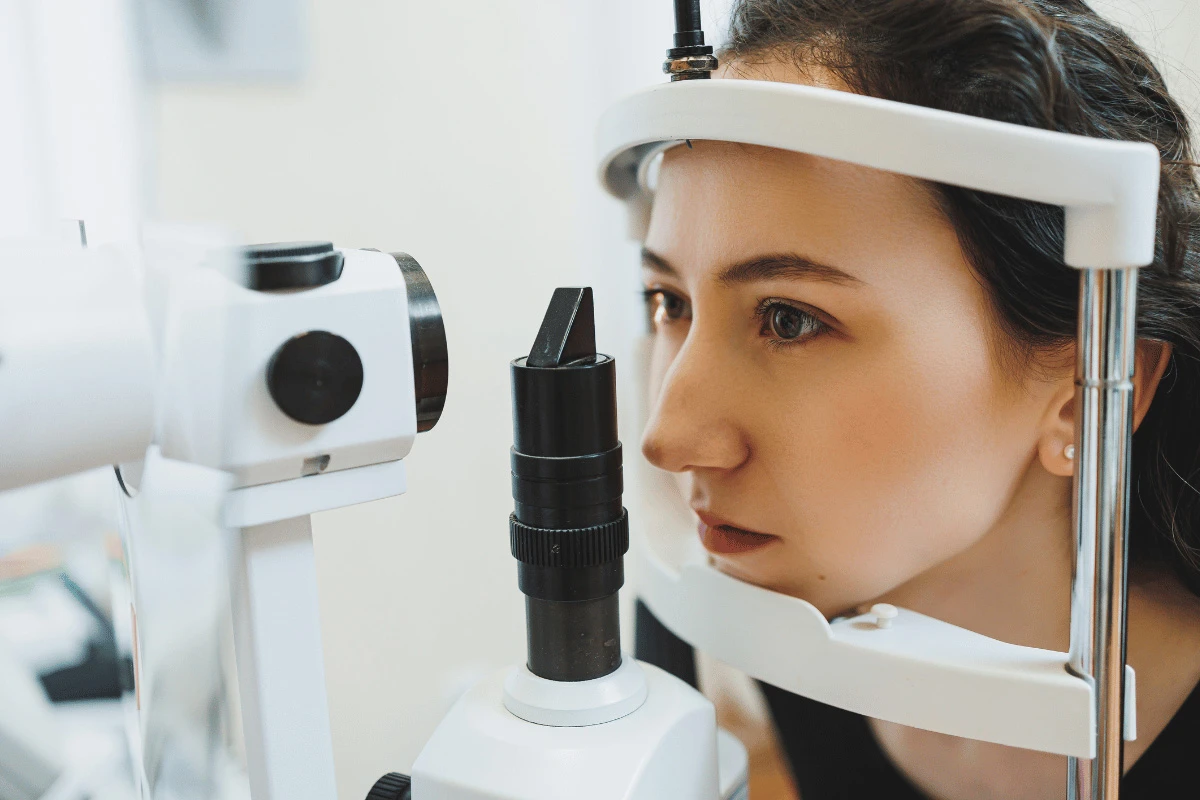When you think of an eye exam, you probably think about updating your prescription for glasses or contact lenses. But did you know that a comprehensive eye exam can also detect early signs of diabetes?
While most people think of getting a blood test to detect diabetes, an eye exam is another way to diagnose this condition. Your optometrist can look for eye abnormalities that can be early indicators of conditions like diabetes. This is a crucial aspect of eye care that helps protect not just your vision but your overall health, too.
Learn more about the connection between diabetes and your eyes and why regular comprehensive eye exams in Plymouth are critical.
How diabetes affects your eyes
Diabetes can affect many parts of your body, including your eyes. When blood sugar levels are high, it can damage the tiny blood vessels in your retina, leading to a condition called diabetic retinopathy. This can cause vision loss if it’s not caught early.
Diabetes can also increase your risk of other eye conditions, such as cataracts and glaucoma. Often, eye doctors are the first to spot signs of diabetes during an eye exam, sometimes even before you notice any symptoms.
What your eye doctor looks for
Your eye doctor might not directly test for diabetes, but they can identify signs of diabetes-related eye complications. During an eye exam, your optometrist will look for several signs that could indicate diabetes:
- Changes in blood vessels: Diabetes can cause the blood vessels in your retina to swell, leak, or grow abnormally.
- Bleeding: Small hemorrhages in the retina can be a sign of diabetic retinopathy.
- Swelling: Diabetic macular edema, a complication of diabetic retinopathy, causes swelling in the macula. The macula is the part of the retina that controls clear, straight-ahead vision.
- Deposits: Yellowish fatty deposits on the retina can also be a sign of diabetes.
Why early detection matters
Early diagnosis and treatment can make a significant difference in managing diabetes and preventing complications. Early detection means you can start treatment sooner, which might include:
- Diet changes
- Adjusting your medications
- Regular check-ups to keep your blood sugar levels in check
How often should you get an eye exam?
If you have diabetes, it’s important to have a comprehensive eye exam at least once a year. Even if you don’t have diabetes or think your vision is perfect, regular eye exams are still crucial. They help keep your vision clear and can catch health issues early on. The early stages of diabetic retinopathy and other eye conditions usually don’t have any symptoms. Scheduling regular eye exams will help you keep your eyes as healthy as possible.
If you think you might have diabetes or it’s time for your eye exam, don’t wait. At Progressive Family Eye Care, we offer annual eye exams that can detect early signs of diabetes and other health problems. Our friendly, experienced eye doctors use the latest technology to check your eyes and ensure the best care possible.
Book an appointment online today for an eye exam at Progressive Family Eye Care in Plymouth.





